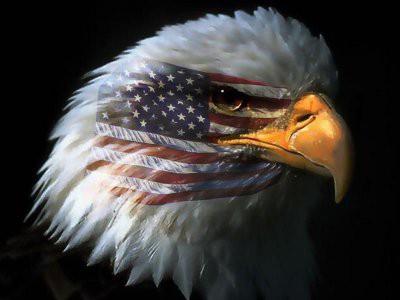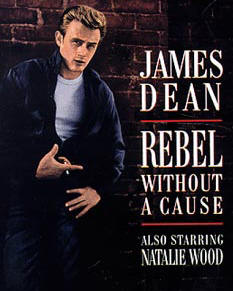 VigilanceVoice
VigilanceVoice

Thursday.. January 10, 2002—Ground
Zero Plus 121
TERRORISM'S TEENAGE VIRUS
"I'm Nobody Special!"
by
Cliff McKenzie
Editor, New York City Combat Correspondent News
I understood a small part of the
reason why 15-year-old Charles Bishop flew a Cessna 172 into the 28th
floor of the Bank of America building in Tampa Florida—nobody knew
what was going on in his heart and soul.
As a teenager, I felt alienated and disenfranchised from
my parents, from my schoolmates, from society at large. Anger roiled
inside me and I kept it hidden, buried deep, covered in the caves of
Terrorism in my soul so that no one could see the turmoil, no one knew
the angst that haunted me.
My problem, as was that of Charles Bishop, was that I was
a “nobody special.” Inside, I was an empty vessel, with no real
connections to anyone or anything, pretending to try and be somebody,
but knowing deep down I was a nothing—and resenting it.
Bishop’s teachers called him a “sweet kid.” His parents
said they were “shocked.” Bishop did a good job of hiding his
emptiness, his loneliness.
So did I.
So do thousands upon thousands of teenagers who, in the
turmoil of puberty where hormones rage to transfer the child to
manhood or womanhood, the urge to become “somebody” often overpowers
the dark, dank emptiness of being a “nobody.”
I believe that Charles Bishop was a victim of Parental
Complacency. Perhaps even Societal Complacency.
So often we turn the upbringing of our child’s emotional
maturity over to our schools and society. We forget that the
building of human character is a deeply personal effort, requiring a
constant vigilance by parental or guardian mentors who, understanding
the loneliness of a child’s inner self and its fragility, carefully
mold and strengthen the personality of it from the inside out.
I made every attempt as a father to bolster my children’s
emotional strengths, to teach them they were “somebody special” on a
daily basis because I knew what it was like to be neglected from
within—to walk around as a child with my soul aching to be massaged
and loved and appreciated and receiving instead the complacency of
parents far too busy struggling with their own identities and emotions
to consider mine.
It perturbs me to hear psychologists rail on the reasons
why a seemingly nice young man would fly his plane into a building,
and carry a not supporting bin Laden when there was no physical
evidence that he aligned himself to the Beast of Destruction prior to
his suicide. They talk about a “troubled teen,” as though Charles
Bishop was some exception to the “Rebel Without A Cause”
 rule
that has dominated teenagers since the dawn of time as they strive for
an identity in a faceless, seemingly cold and uncaring world.
rule
that has dominated teenagers since the dawn of time as they strive for
an identity in a faceless, seemingly cold and uncaring world.
While no one can guarantee the outcome of anyone’s life,
the foundation for that life can be dug with deep and strong roots to
help insure it will grow as strong as possible and weather most any
assault on its superstructure.
That’s where the Pledge of Vigilance comes into play.
The core of its power lies in teaching a child “emotional value”
through Parental Vigilance. A person’s identity—what one thinks of
oneself—has everything to do with how emotionally rich or poor an
individual will become as he or she matures.
Children are like clay. They can be molded into
personalities of shame and guilt and intimidation and fear, or into
beings of courage, conviction and action. The guardianship of these
feelings rests with the parents or guardians who have ultimate.jpg) responsibility not just for the physical welfare of a child, but most
importantly, for its emotional well-being.
responsibility not just for the physical welfare of a child, but most
importantly, for its emotional well-being.
Children know when they are loved or unloved, appreciated
or neglected, supported or left stranded. It comes down to simple
caring about the structuring of the child’s emotional foundations—what
does the child think of himself or herself?
There is only one way to find the answer to that
question—and that is to develop those answers for a child—not leave
the child to find them on his or her own. Such neglect invites
potential disaster.
Parents who have children are not unlike any creature who
bears a new generation. In nature, the creatures mold the character
of their offspring by teaching them how to survive in a world full of
threats and dangers.
Last night, for example, my wife and I were babysitting
our grandchildren, Sarah, age 3, and Matt, 5. We often watch the
Discovery Channel where the lives of various animals are displayed in
an hour-long show called Explorer. Last night it was about the
mountain lion. It showed how the mother nurtured the babies, taught
them how to hunt, protected them, guided them so that they could
survive the world they would enter.
One startling scene was when a mountain lion challenged a
mother bear and her cubs, and the mother bear ran off rather than
fight and left her cubs to become the prey of the mountain lions.
It symbolized the two kinds of parents in this world—The
Parents of Vigilance and the Parents of Complacency. The Parent of
Vigilance fights to the death to protect his or her child from the
world’s harm. The Parent of Complacency turns his or her back,
ignoring the safety of the child, leaving it to be prey for the world.
If a parent has become a child’s best friend, working with
it from birth, through the ladders of maturity, being there for it
when it is lonely and frightened, teaching it how fight fear with
courage, intimidation with conviction, and complacency with action,
the parent will never be surprised at a child’s actions. The parent
will know the child, and the child will know the parent. They will
become one in life.
Charles Bishop was a Rebel With A Cause. Nobody knew
what that cause was, because he kept it hidden.
He was full of anger and rage and resentments against
himself and others, and allowed those feeling to boil to the surface
as he climbed into the Cessna
 and
aimed it at a building, knowing that his life was no longer worth
living, and neither were the lives of the innocent whom he might take
with him.
and
aimed it at a building, knowing that his life was no longer worth
living, and neither were the lives of the innocent whom he might take
with him.
If America took an honest poll of teenagers and asked the
question: “Do you feel like somebody special
or like a nobody special?” we might be surprised at the
answer. It might shock the parents who think their children are
well-rounded, normal teenagers. Being “somebody” means that you have
been recognized deep within by another as being of great value to
yourself and others, and that you have a mission on this earth to
create value through your actions so that the world becomes just a
little better as a result of your existence.
Being somebody means you have learned not to be afflicted
by what others think of you, or intimidated by the need to be
“accepted by others” before you “accept yourself” as being special.
It means a parent, or guardian or mentor must stand at the side of a
child at all times, as the mother mountain lion did her cubs, ready to
protect it by teaching it how to be “special” in the face of threats
to turn it simply into prey, fodder, fuel for others to use to get
what they want at your expense.
As the Pledge of Vigilance clearly states, it is vowing to
teach a child to fight fear with courage, intimidation with
conviction, and complacency with action. It starts when the child
is conceived, and continues throughout its life. It means the role
of the parent is to become an emotional value coach, constantly
fighting the Terror within a child that he or she is “nobody special.”
There’s a movie out that rings the bell on this issue.
It’s called “Joe Somebody.” The title alone suggests that before Joe
became a Somebody he was a Nobody. It means he lived a life through
maturity walking around feeling “less-than” his fellow
citizens—demeaning himself from within for what he wasn’t and wishing
for what he couldn’t imagine himself being.
Joe Somebody’s mother bear left him to be prey to the
lions long ago, or wouldn’t want to be Joe Somebody. He would know he
was already.
Charles Bishop was a Charles Nobody wanting to be a
Charles Somebody.
The irony is, he really was "somebody"--only he didn’t
know it.
No one helped him really see who he really was--somebody
special!
Had he seen himself for what he was, a young man of
courage, conviction and action, he would have wanted to pass those
virtues on to others--not destroy them in a suicide crash trying to be
"like somebody else."

Go To
Jan. 9--GI-JOE TERRORISM
©2001
- 2004, VigilanceVoice.com, All rights reserved
- a ((HYYPE))
design
